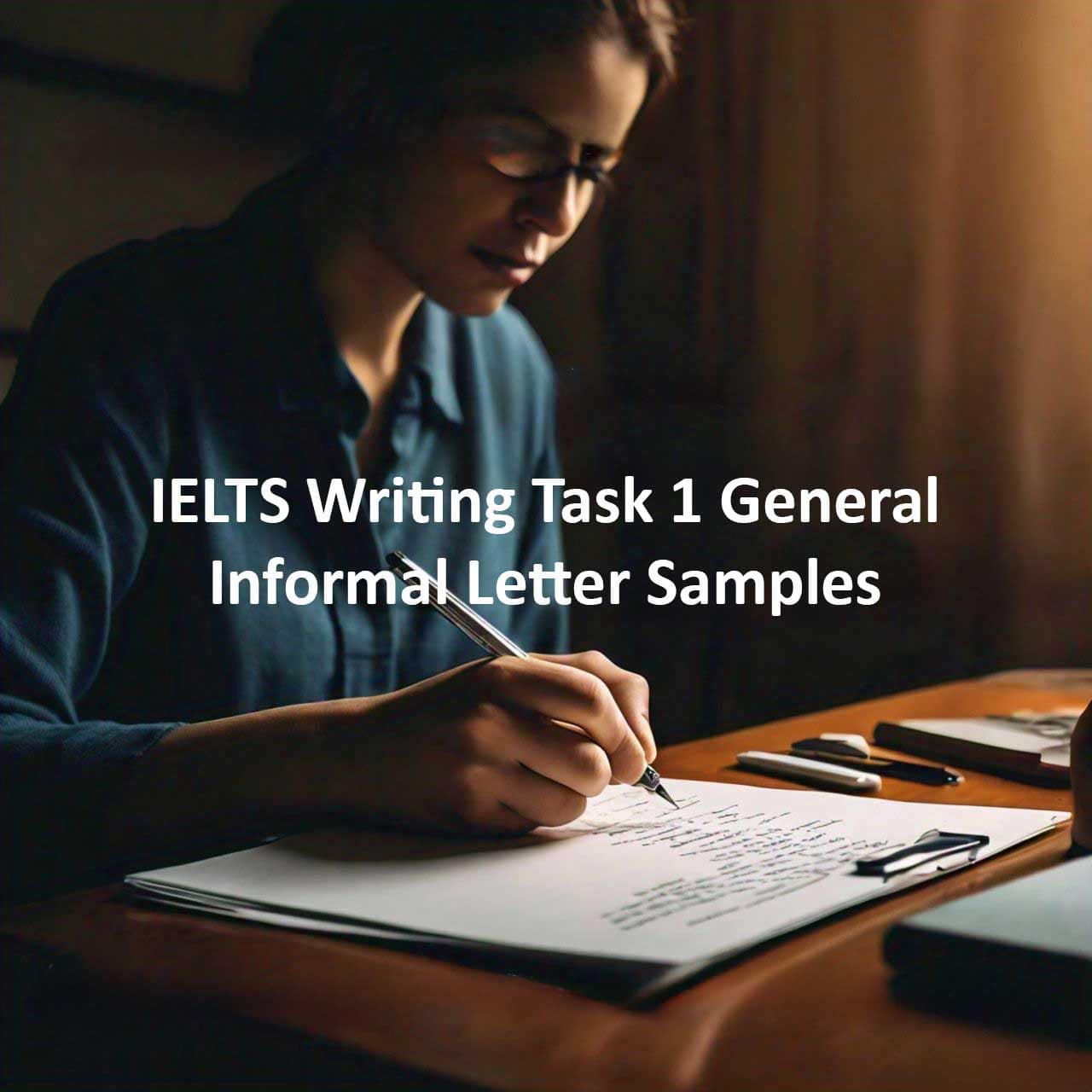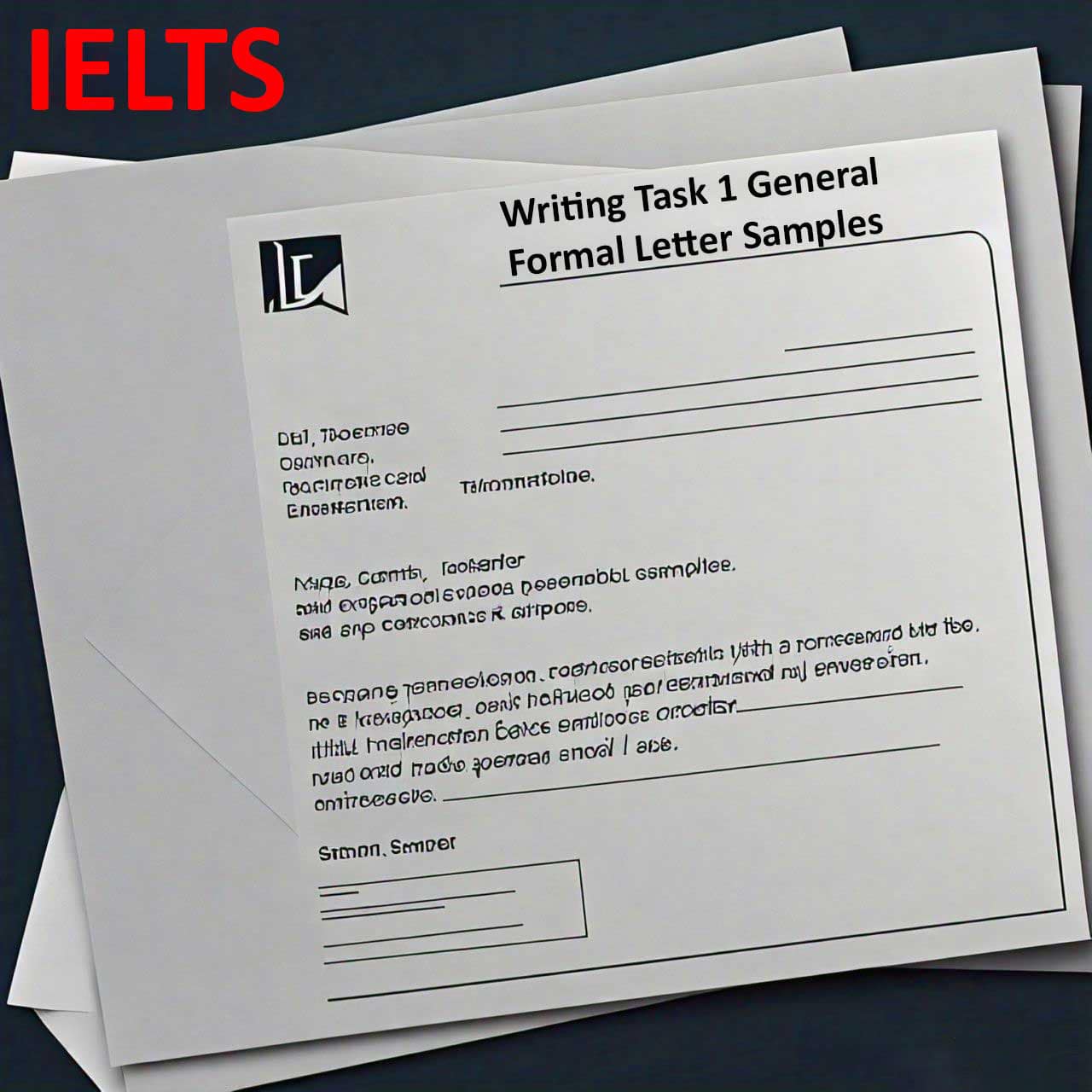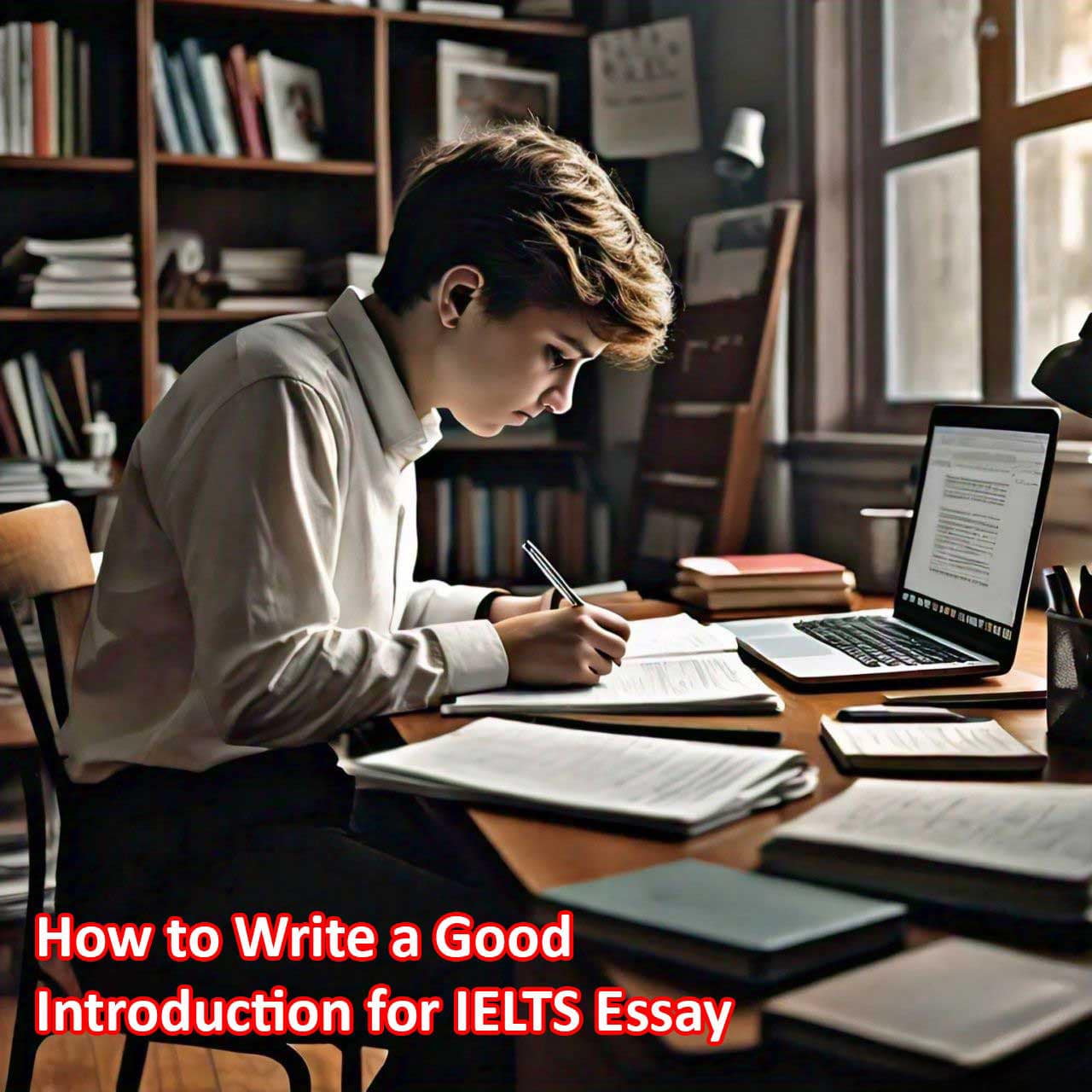In the IELTS Writing Task 1 General module, candidates are often required to write an informal letter in response to a given prompt. This task assesses your ability to communicate in a personal, friendly tone while conveying information and expressing opinions. Whether you’re preparing for the IELTS Academic or General Training, mastering the art of informal letter writing is crucial for achieving a high score. This blog post provides examples of informal letters for IELTS Writing Task 1 General, along with tips to help you excel in this section of the exam.
Understanding IELTS Writing Task 1 General Informal Letters
An informal letter in the IELTS context is typically written to a friend, family member, or acquaintance. It involves sharing personal information, experiences, opinions, and making informal requests or invitations. The tone should be casual, friendly, and conversational, reflecting a genuine exchange between individuals.
Common Topics for IELTS Writing Task 1 General Informal Letters
– Inviting a friend to an event or celebration
– Describing a recent holiday or trip
– Sharing news or updates about personal life
– Thanking someone for a gift or hospitality
– Apologizing for missing an event or appointment
Now, let’s explore some sample prompts and corresponding informal letter responses:
Sample Informal Letter Samples
Prompt: You recently visited a friend’s new house. Write a letter to another friend describing the visit and your impressions of the house.
- [message]
- Sample Response:
- Dear [Friend’s Name],
- I hope you’re doing well! I just had to tell you about my visit to Sarah’s new house last weekend—it was absolutely fantastic!
- As soon as I walked in, I was blown away by the spacious living room and the cozy atmosphere. Sarah’s taste in interior design is impeccable; every corner of the house reflects her vibrant personality. We spent hours chatting in the kitchen while she whipped up some delicious snacks—her cooking skills have definitely improved!
- The best part was the backyard garden. Sarah’s turned it into a mini oasis with blooming flowers and a comfy hammock. It’s the perfect spot to relax and unwind after a hectic day.
- I can’t wait for you to visit and see it all for yourself. Let me know when you’re free—we could plan a barbecue in her backyard!
- Take care and talk soon!
- Warm regards,
- [Your Name]
- Sample Response:
Prompt: You recently attended a concert with your cousin. Write a letter to your best friend recounting your experience and recommending they attend similar events.
- [message]
- Sample Response:
- Hey [Best Friend’s Name],
- I hope you’re doing awesome! Guess what—I had the most amazing time at a concert last night with my cousin, and I couldn’t wait to tell you all about it!
- We went to see [Band/Artist] at [Venue], and let me tell you, they rocked the stage! The atmosphere was electric, and the crowd was singing along to every song. My favorite part was when they played [Favorite Song], and everyone went wild.
- You’ve got to experience this vibe, seriously. I know you love live music as much as I do, so we should definitely plan to catch another concert together soon. I’ll keep an eye out for upcoming events—let me know if you’re in!
- Catch up soon, buddy!
- Cheers,
- [Your Name]
- Sample Response:
Tips for Excelling in IELTS Writing Task 1 General Informal Letters
1. Addressing the Prompt: Ensure you understand the prompt and respond appropriately in a friendly, conversational tone.
2. Organizing Your Letter: Structure your letter with an introduction, main body paragraphs (with details or reasons), and a conclusion.
3. Using Informal Language: Use contractions (e.g., I’m, can’t), colloquial expressions, and appropriate slang to maintain an informal tone.
4. Expressing Opinions and Emotions: Share personal experiences, opinions, and emotions to make your letter engaging and authentic.
5. Proofreading Your Letter: Check for grammatical errors, punctuation, and spelling mistakes before submitting your response.
By practicing with these sample informal letters and following the tips provided, you can enhance your skills in writing informal letters for IELTS Writing Task 1 General. Regular practice, receiving feedback from teachers or peers, and focusing on improving your language fluency will help you achieve success in this section of the exam. Best of luck!
This blog post aims to guide you through the process of writing effective informal letters for IELTS Writing Task 1 General, offering practical examples and actionable tips to boost your preparation and confidence on test day.



